One year later: what's changed in the Bay Area since the death of George Floyd?
OAKLAND, CA - JUNE 14: Graffiti in honor of George Floyd is displayed on a wall on June 14, 2020 in Oakland, California. Floyd was killed by Minneapolis Police on May 25 which sparked nationwide protests in its wake. (Photo by Thearon W. Henderson/Ge
OAKLAND, Calif. - One year ago today, George Floyd died in Minneapolis after a police officer knelt on his neck for nearly nine minutes.
The nation erupted in protest and demanded change.
Since that time, May 25, 2020, some change has occurred. Police Officer Derek Chauvin was found guilty of murder. Modest police reforms - such as bans on chokeholds - have taken place throughout the country and cities have striven to reform law enforcement methods by taking some money away from police departments and funneling those funds into crisis teams.
At the same time, to some, it appears as though change hasn't come at all.
FLASHBACK: Death of George Floyd sparks Bay Area protests
There have still been a rising number of mostly Black and brown men killed by police, including several Bay Area cases, such as Angelo Quinto in Antioch and Mario Gonzalez in Alameda, who both died after police were seen kneeling on their backs.
And while many Bay Area leaders have moved forward to create alternatives for sending police to every 911 call, these programs started in cities such as San Francisco and Oakland, have not really taken off and are only in their infancy stages.
Here's a look at how life has changed, if at all, in the Bay Area from a variety of perspectives.
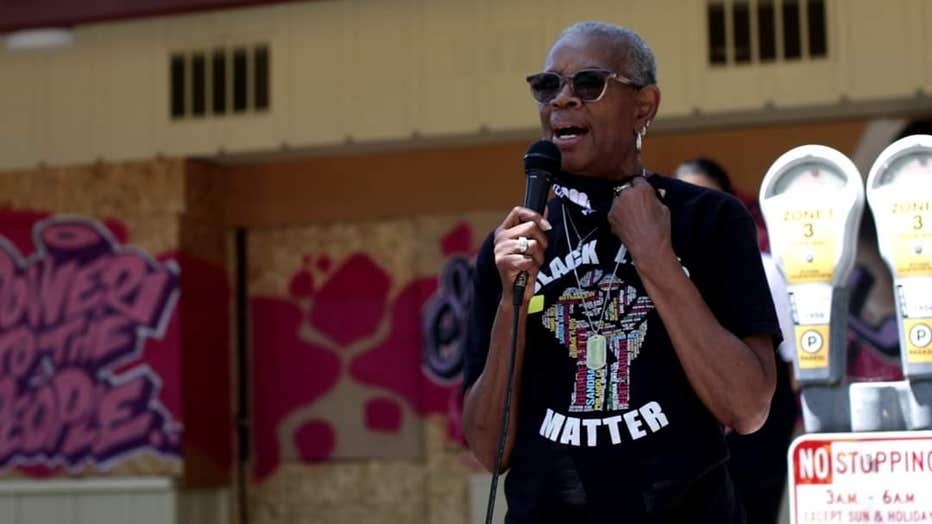
Steven Taylor's grandmother, Addie Kitchen, speaks at an event in San Leandro. July 18, 2020 (Zachary Borja )
Addie Kitchen, grandmother of Black man killed by San Leandro police
"I don't think anything has changed at all," said Addie Kitchen, the grandmother of Steven Taylor, a Black man with schizophrenia who was killed by San Leandro police in April 2020 while waving a bat in Walmart. "Officers are still killing people."
Case in point: She pointed to the fact that Mario Gonzalez was killed by Alameda police the day after the one-year anniversary of her grandson's death.
The fact that Dereck Chauvin was found guilty of murdering George Floyd and that Officer Jason Fletcher, who killed her grandson, was charged with involuntary manslaughter, are just tiny ripples in a vast ocean, she said.
"We have not really achieved what we need to," she said. "And that is holding officers accountable for their actions."
San Leandro celebrates Steven Taylor Day
San Leandro celebrates Steven Taylor Day a year after the man was killed by police.
Meanwhile, Kitchen has continued her activism along with other community members.
She and her grassroots colleagues are working to get better mental health programs in San Leandro and independent police oversight, like they do in Oakland and San Francisco.
But the work is slow-going and she hasn't felt that she has yet reaped enough reward for the time and effort she's expended.
"We're working really hard," she said. "We're doing all the beating and the screaming and the yelling and things have still not charged."
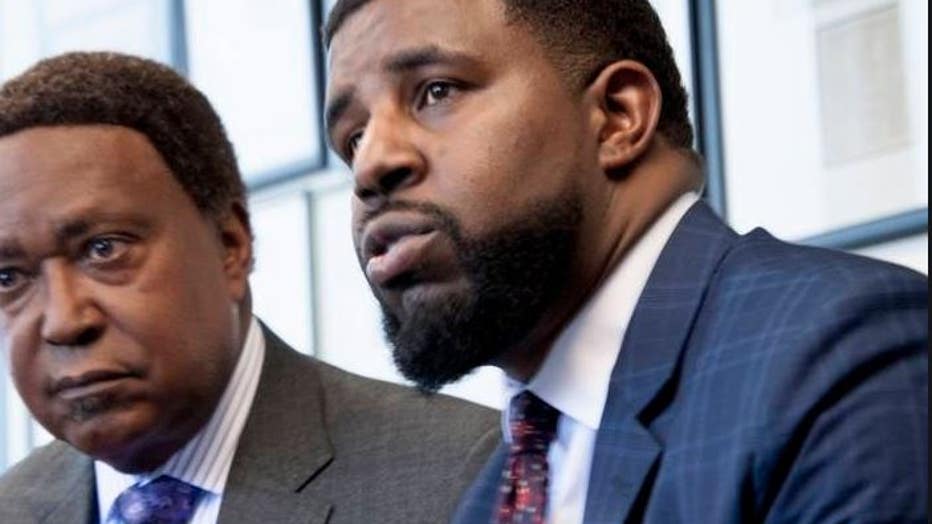
Adante Pointer (right front) is a civil rights attorney with the John Burris (left) Law Firm in Oakland.
Adante Pointer, civil rights attorney
"From my point of view, it's mostly police business as usual," said Oakland civil rights attorney Adante Pointer. "People continue to be shot, killed and falsely arrested. It's a steady drumbeat of business as usual for the loss of Black and brown lives."
He pointed to his latest client; the family of Caleb Smith, who was shot to death by Hayward police,. The department alleged that the 22-year-old was trying to ram a car into them in the parking lot of a Motel 6 in March.
Police did not have to shoot Smith to death, Pointer said, noting how police could have come up with alternatives to stopping Smith without firing their weapons into his car.
However, Pointer did note some "notable exceptions" to the business-as-usual rule.
District attorneys in San Francisco, Contra Costa and Alameda counties have started to charge police officers for the deaths of some of these predominantly Black and brown men.
FLASHBACK: In a 1st for office, San Francisco DA charges former rookie officer with manslaughter
One of the most recent cases includes Danville Officer Andrew Hall being charged with voluntary manslaughter following the 2018 death of Laudemer Arboleda, a mentally ill man ringing doorbells in an upscale neighborhood who then tried to drive away from officers who fatally shot him.
Because prosecutors are starting to look at police shootings with fresh eyes, Pointer said he now has "some optimism" that officers are now being held accountable.
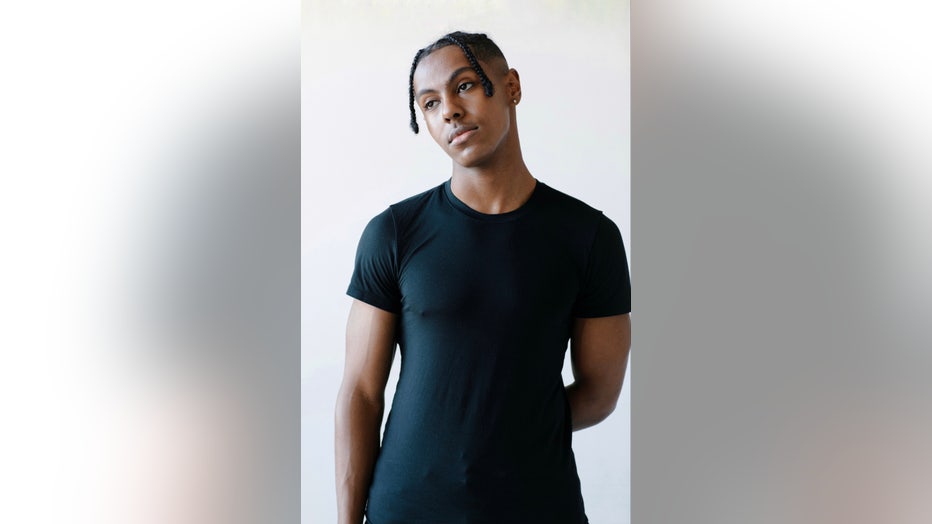
Samuel Getachew, 18, Oakland youth activist
Samuel Getachew, youth activist
"Personally, I don't believe much has changed structurally but has culturally," said Samuel Getachew, 18, of Oakland. "We live in a peculiar era now where appearing to champion equality and social injustice has become an incredibly lucrative pursuit."
In his opinion, Getachew said that companies, brands, public figures, politicians, and regular individuals have been able to elevate their images by adopting language and talking points that were once considered radical or were rarely found beyond academic contexts.
In some ways, he said he is encouraged by this increase in the use of this vocabulary.
"But I am also deeply concerned that these ideas and concepts will become - or have already become - overused to the point of obsoletion," he said.
For as long as political representatives are more concerned with wearing symbolic clothing than they are with implementing new ways to address the social circumstances that create crime, we will continue to witness the violence that is policing, Getachew said.
He added: "For as long as we are more concerned with the appearance of racism than we are with the material effects of it; for as long as Black lives are found to be more valuable as martyrs than they are as the living; we will continue to see more deaths like Floyd's."
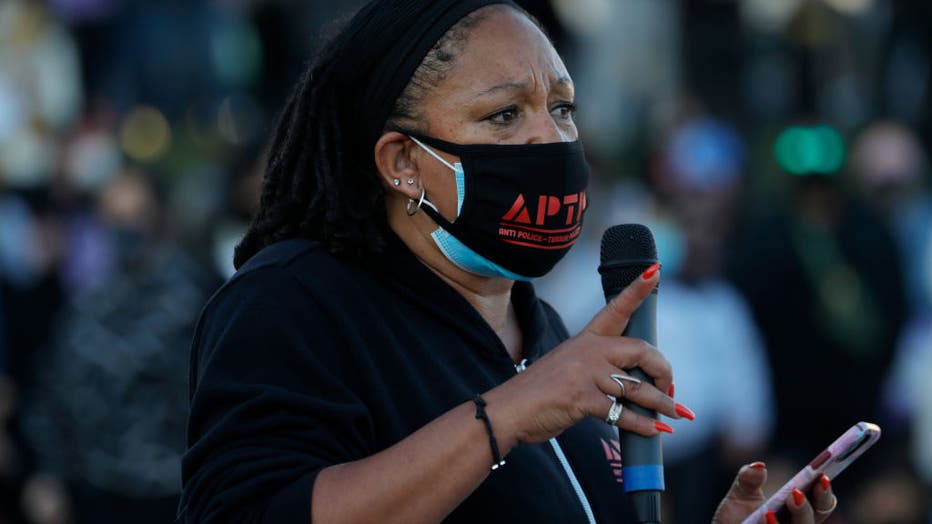
Activist Cat Brooks speaks during an anti-Asian hate vigil at Chinatown's Madison Park in downtown Oakland, Calif., on Tuesday, March 23, 2021. (Jane Tyska/Digital First Media/East Bay Times via Getty Images)
Cat Brooks, founder of the Anti-Police Terror Project
"When George Floyd was murdered by officer Derek Chauvin, mass demonstrations erupted across Oakland, the U.S. and the rest of the world," said Cat Brooks, a police reform activist in Oakland and the founder of the Anti-Police Terror Project. "Defunding the police moved from a local demand to become a national rallying cry. But since then, police officers continue to kill Black and Brown people with impunity."
In Oakland, Brooks helped create the Reimagining Public Safety Task Force, a group that has been pressuring city leaders to defund the Oakland Police Department by 50%.
"On George Floyd’s anniversary, we demand that the politicians who say Black Lives Matter will finally agree to spend less on policing and more on improving conditions for Black life such as critical services like housing and mental health support," Brooks said.
Voices for Change | April 25, 2021
Presented by KTVU's Greg Lee. We examining the historic verdict in the Derek Chauvin trial.

Antioch Mayor Lamar Thorpe
Lamar Thorpe, mayor of Antioch
"In Antioch, the political dynamic has changed," said Antioch Mayor Lamar Thorpe. "This was a racist city. No one likes to say it. And the political dynamics have always fallen in that framework: Don't interrupt the status quo."
But in Thorpe's eyes, "the world has changed."
In the last year, the city council has voted to pay for body cameras for the police department and the council is poised to hire a consultant to look at creating a CAHOOTS-like model of crisis intervention for many non-criminal emergency calls, where mental health experts show up to help distressed individuals, not police.
CAHOOTS is the name of a "mental-health first response" public safety program started in Eugene, Ore., and is now being used around the United States as a model for alternative policing.
Thorpe is also spearheading an effort to create independent oversight for the police department.
Aside from tangible city programs, Thorpe said that George Floyd's death changed the way racism is talked about and understood.
"The onus on Black people to explain how racism operated is not on us anymore," " he said. "And it's not our responsibility to make people feel comfortable. That's freeing and liberating. I can call people out on their bullcrap."
Body cam video shows Alameda officer kneeling on Mario Gonzalez before death
The family of a man who died during some sort of scuffle with Alameda police is contradicting the official narrative of how he died after a private viewing of a body camera video in the last moments of his life. Alameda police have now released the full police-worn body camera footage.
Marilyn Ezzy Ashcraft, mayor of Alameda
Marilyn Ezzy Ashcraft, the mayor of Alameda, said that the death of George Floyd, coupled with the disparate impact of COVID-19 on Black and Latinx communities, "contributed to the resurgence of the Black Lives Matter movement, which led communities to take action to address the racial injustice that was exposed."
In Alameda, community members began reimagining how police services are delivered; actions that took on heightened urgency with the death of Mario Gonzalez, an intoxicated man who died after three Alameda police officers knelt on his back trying to get him into handcuffs.
As a response to his death, the City Council directed the city manager to accelerate the implementation of recommendations that include creating and identifying funding for a pilot program that provides alternative responses to police calls involving mental health, substance abuse, and homelessness by the end of June.
EARLIER: Alameda protests after black man arrested for dancing
Ezzy Ashcraft noted: "At the same time, we’ve also seen an increase in violence and hate crimes directed at Asian-Americans and Pacific Islanders, highlighting the need for continued dialogue and action to address these forms of racial injustice."
She added: "The fact that so many people are demonstrating and speaking out against this violence, and that the Alameda County District Attorney’s office is focused on prosecuting these hate crimes, gives me hope that we will emerge from the crises of this past tumultuous year a stronger, more unified, and more just community."
Alison Berry Wilkinson, attorney representing police officers
George Floyd's death caused law enforcement to be more introspective, said Alison Berry Wilkinson, an attorney representing the three officers who knelt on Mario Gonzalez's back in Alameda before he died on May 19.
"They had to take inventory on how they do business and train," she said. "The standard police practices are no longer acceptable, but the training hasn't caught up."
Officers are trying to do the best they can, she said, but "it's a very tricky balance," because "one day, they're heroes and the next they're villains."
SEE ALSO: From NFL to SJPD, ex-football player describes journey to become officer at protests
She explained that police have learned how to do things one way for so long and now they have to revise those methods while also meeting the community's need for safety.
Police officers are trained to enforce the law, she said, and are not mental health professionals. But there is now a greater emphasis in both training and practice on crisis intervention and de-escalation training that is regularly being implemented on the streets. What is lacking, she said, is the resources for the police to implement an option other than placing someone in handcuffs and taking them to jail.
All the heightened focus on policing has made "the job of the on-the-street officer much harder," she said.
In her opinion, she said that most officers want to do a good job and "have no interest in being front-page headlines."
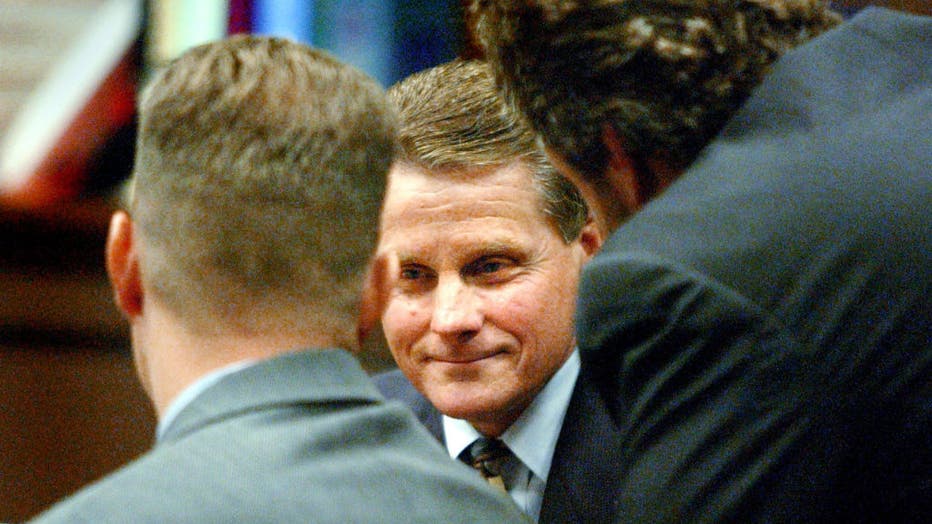
Defense attorney Michael Rains, center, exchanges an optimistic smile with former Oakland Police officer Matthew Hornung, left, as they wait for the verdict at the Alameda County Court House in Oakland, Calif. Sep. 30, 2003. (Ray Chavez/MediaNews Gro
Michael Rains, police union attorney
"A lot has changed for the police and officers on the street and only for the bad," said Michael Rains, who represents most of the police officers in the Bay Area, including San Leandro Officer Jason Fletcher, charged with the death of Steven Taylor.
His law partner represents Danville Officer Andrew Hall, who was charged with the death of Laudemer Arboleda, an unarmed Filipino man, in 2018, or when he fired a single shot to the head of Tyrell Wilson, a Black homeless man about two years later.
Rains said that most police officers feel that what Chauvin did to George Floyd by kneeling on his neck was wrong and he deserved to be prosecuted.
But what he doesn't feel is fair is the public "maligning the vast number of professional officers trying to do good work and keeping people safe based on the acts of one bad actor."
SEE ALSO: Oakland City Council restores $10M in funds to police, fire departments amid spike in violence
In his opinion, Rains said the movement to defund police and what he described as the "unjustified criticism of justified force" is not fair to police all over the country.
And because of these efforts, Rains said, "there is now lawlessness in society. People see the police won't react to many situations because they fear they will be accused of wrongdoing."
When pressed, Rains did acknowledge there might be one silver lining from the fallout of George Floyd: He agrees that mental health crisis workers should be called out more frequently to deal with people in psychological turmoil.
"The police would welcome it," Rains said. "That's one good thing that could come out of this."
Lisa Fernandez is a reporter for KTVU. Email Lisa at lisa.fernandez@foxtv.com or call her at 510-874-0139. Or follow her on Twitter @ljfernandez
Photos from protests related to the death of George Floyd
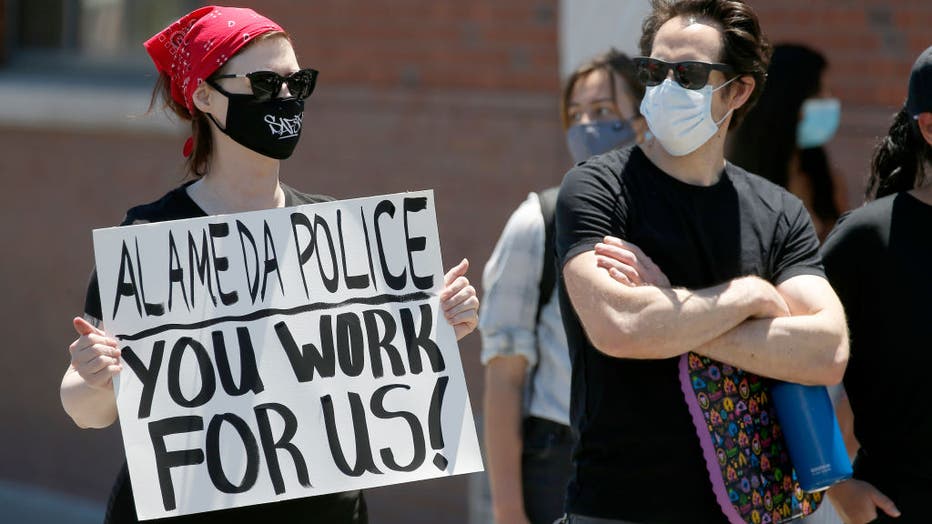
Protesters attend a sit-in and rally for Mali Watkins at the Alameda Police Department in Alameda, Calif., on Thursday, June 11, 2020. Watkins, 43, an Alameda resident and African-American man, was detained by police while was dancing in the streets
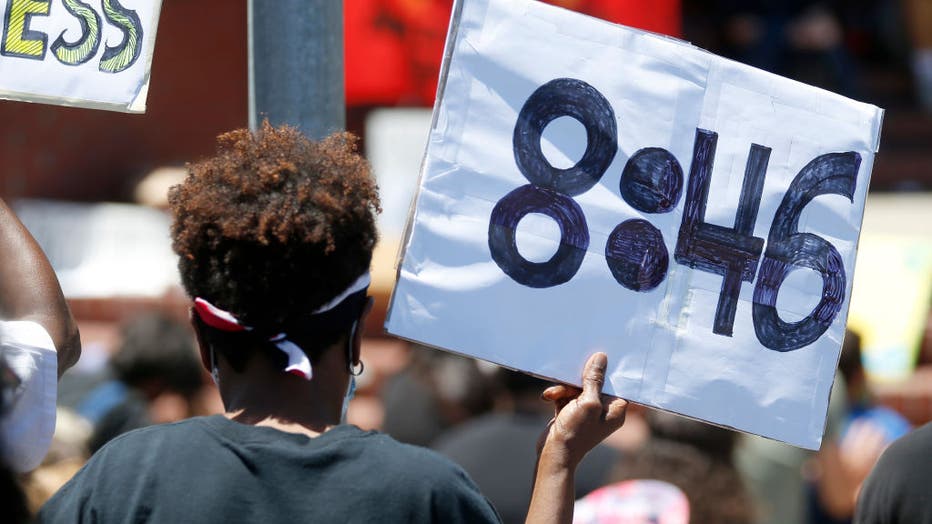
ALAMEDA, CA - JUNE 11: Protesters attend a sit-in and rally for Mali Watkins at the Alameda Police Department in Alameda, Calif., on Thursday, June 11, 2020. (Jane Tyska/Digital First Media/East Bay Times via Getty Images)
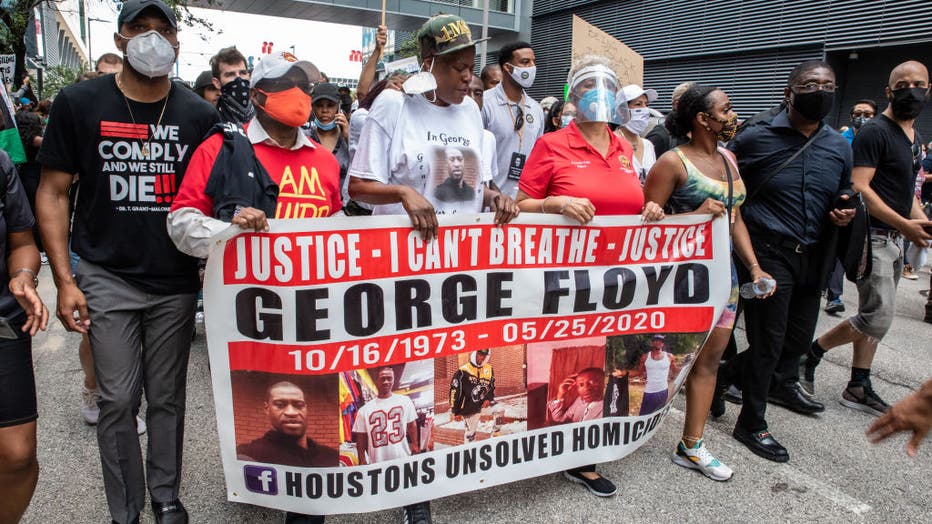
FILE - Protesters march in honor of George Floyd on June 2, 2020 in Houston, Texas. (Photo by Sergio Flores/Getty Images)
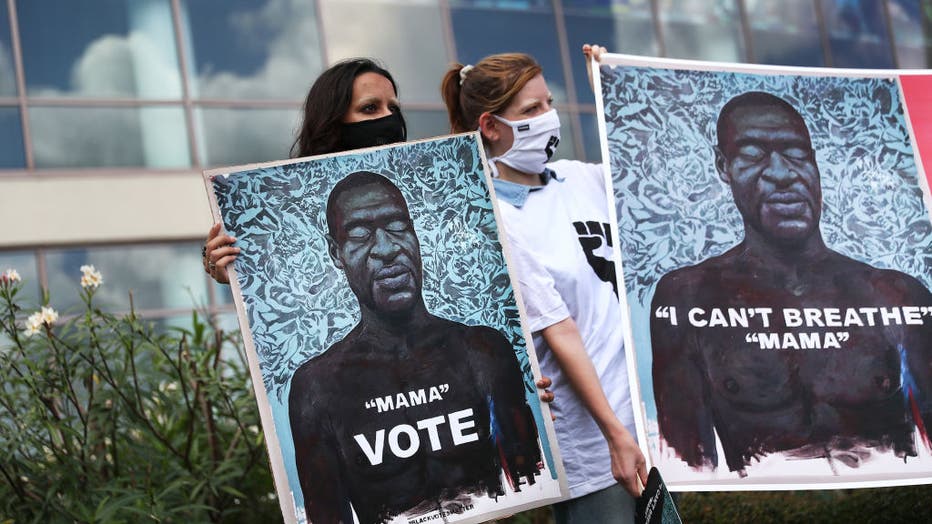
Farah Islam and Madison Campbell (L-R) hold pictures of George Floyd during the public viewing at the Fountain of Praise church on June 8, 2020 in Houston, Texas. (Photo by Joe Raedle/Getty Images)
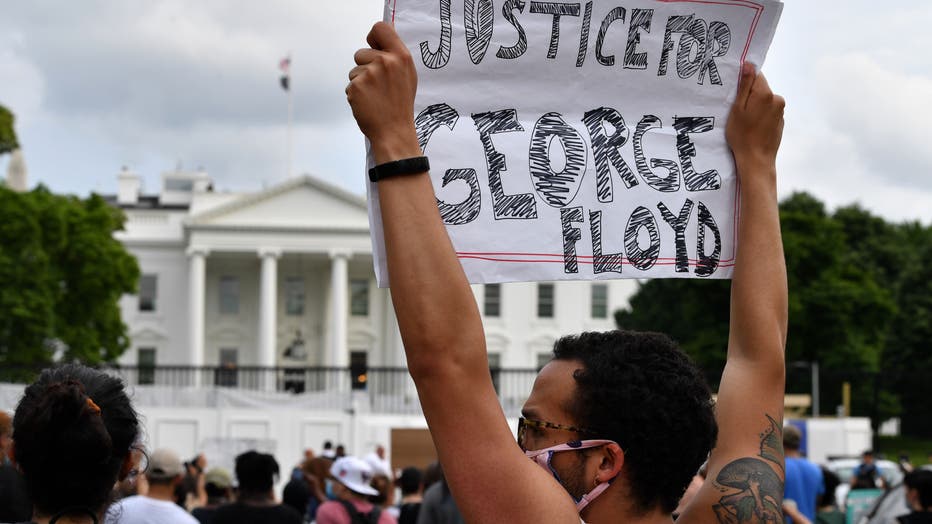
Protesters hold signs as they gather outside the White House in Washington, DC, on May 29, 2020 in a demonstration over the death of George Floyd, a black man who died after a white policeman kneeled on his neck for several minutes. (Photo by Nichola

Oakland police deploy tear gas after a youth-led rally for George Floyd. June 1, 2020 (Frank Sosa )
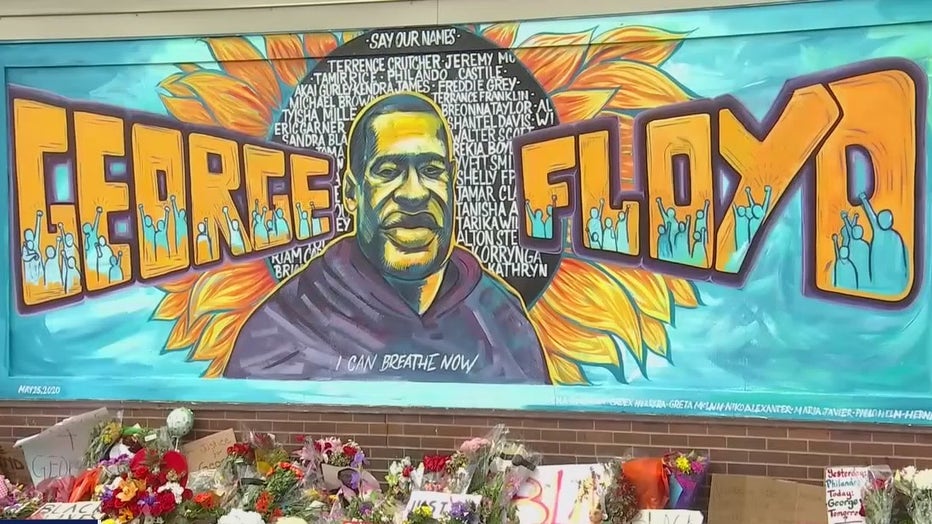
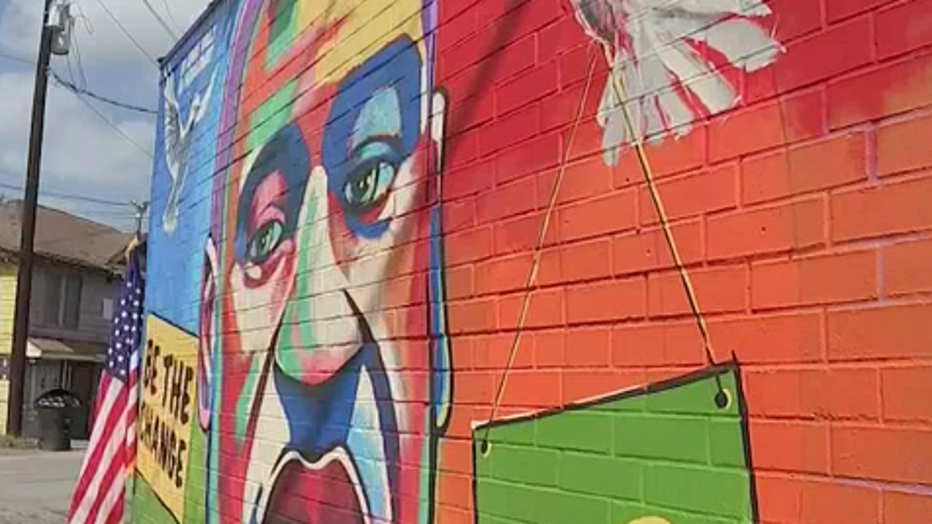
George Floyd mural unveiled in Houston (KTRK / NNS)
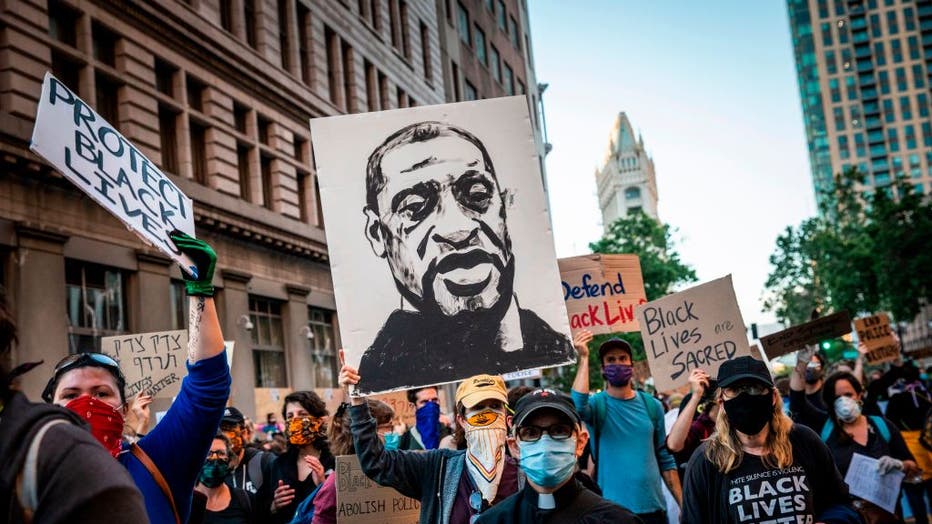
Demonstrators from various faith groups arrive to attend a "Sit Out the Curfew" protest against the death of George Floyd who died on May 25 in Minneapolis whilst in police custody, along a street in Oakland, California on June 3, 2020. - (Photo by P
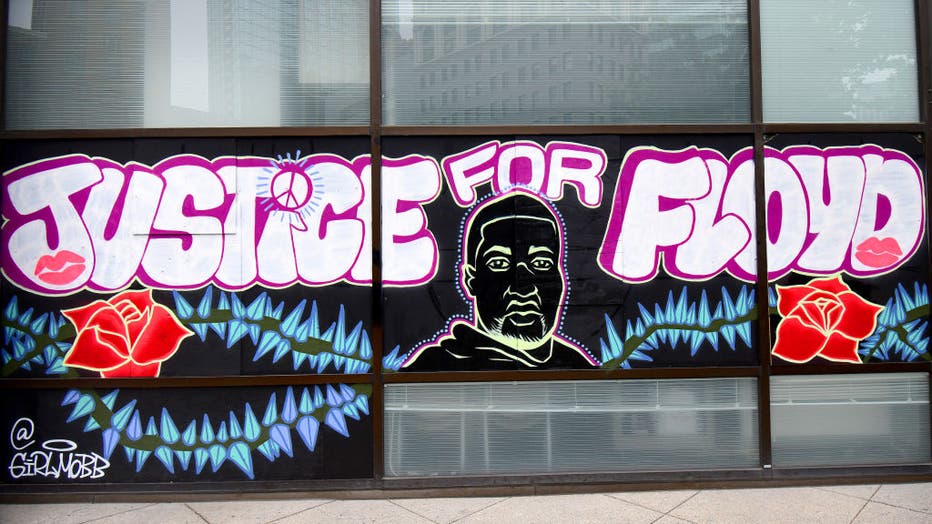
Graffiti in honor of George Floyd is displayed on a wall on June 14, 2020 in Oakland, California. (Photo by Thearon W. Henderson/Getty Images)
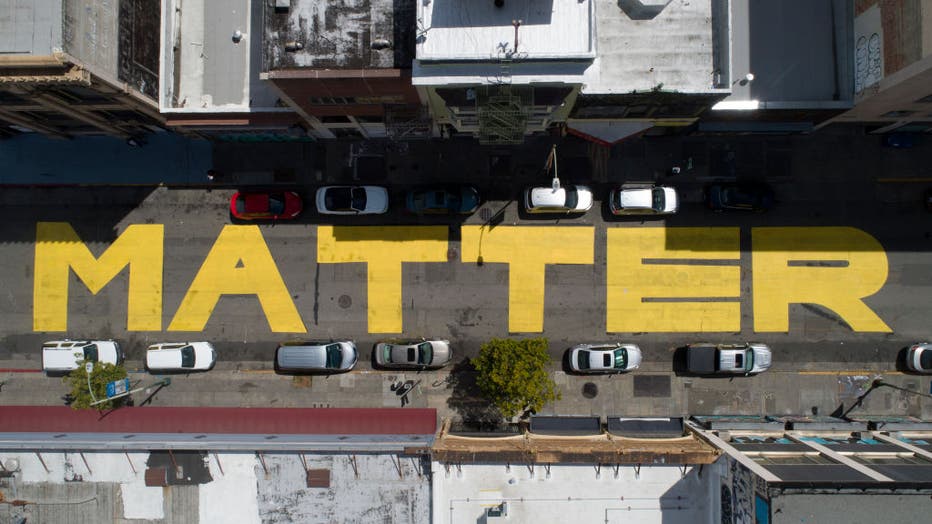
Giant letters spelling "Black Lives Matter" are seen from this drone view on 15th Street in downtown, Oakland, Calif., June 10, 2020. Similar letters have been painted in Berkeley and Washington, D. C. (Jane Tyska/Digital First Media/East Bay Times v

